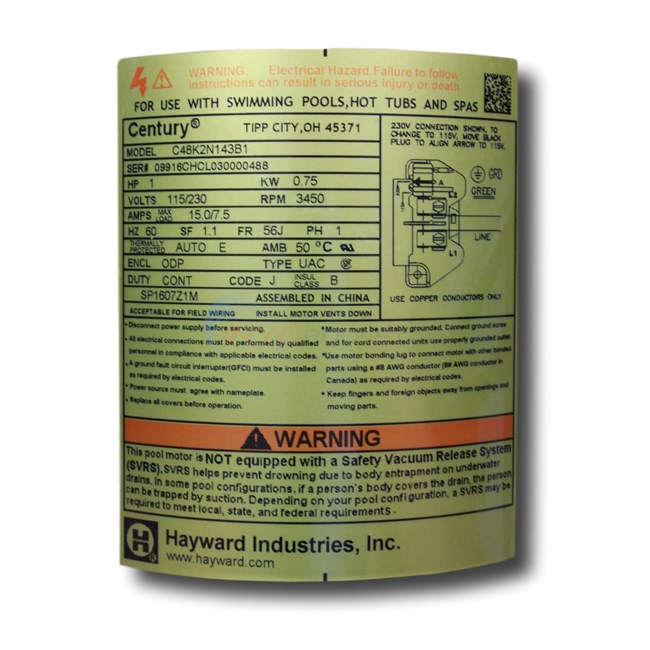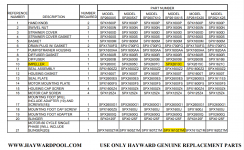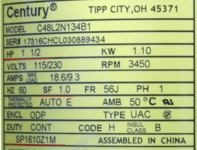- May 18, 2015
- 339
- Pool Size
- 28000
- Surface
- Plaster
- Chlorine
- Salt Water Generator
- SWG Type
- CircuPool RJ-60 Plus
I have an old Hayward Superpump. The original motor is long gone It had been replaced many years ago with a Emerson motor. The plate on it reads as follows:
Emerson EB796
Model K63CXEPZ-4767
1.5 HP SF 1.3 3450 rpm
208-230/115 Volts 60 Hz
amps = 3.7-7.8/15.6 1Ph
MFG # ML06C Frame 56J
1.5 SF
The impeller in my pump housing is a SP2610-C
Is this motor the correct rated motor for the pump assy? if not, what motor would be correct?
Thanks in advance,
Jim
Emerson EB796
Model K63CXEPZ-4767
1.5 HP SF 1.3 3450 rpm
208-230/115 Volts 60 Hz
amps = 3.7-7.8/15.6 1Ph
MFG # ML06C Frame 56J
1.5 SF
The impeller in my pump housing is a SP2610-C
Is this motor the correct rated motor for the pump assy? if not, what motor would be correct?
Thanks in advance,
Jim
Last edited:




